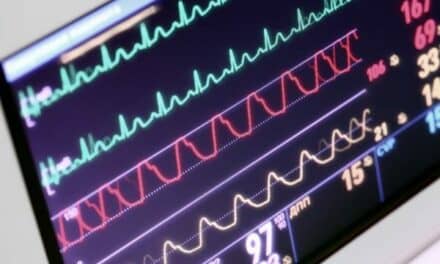Royal Philips, Amsterdam, the Netherlands, introduces the Philips Medical Tablet, an end-to-end, easy-to-implement, portable monitoring kit designed to help clinicians remotely monitor larger patient populations during emergency situations, like the COVID-19 pandemic. The Medical Tablet integrates with Philips advanced IntelliVue XDS software to enable remote access of patient monitoring information, allowing clinicians to care for patients outside of the hospital setting.
This solution is not tied to a central monitoring station and can therefore be operated through WiFi connection, making it easy to deploy and integrate into existing clinical structures and workflows. Additionally, with the Philips Medical Tablet, clinicians experience less exposure to infected patients, and can increase efficiency through less personal protective equipment (PPE) changing, ultimately improving patient and clinician safety.
The COVID-19 pandemic has created a variety of challenges across multiple care settings within the hospital, including higher than normal patient volume in emergency rooms, personnel shortages, reduced bed capacity, and limited resources, particularly PPE. These challenges often lead to overcrowding, increased clinician workload, demand on resources, and the added obstacle of trying to create separation between infected and non-infected patients to minimize the spread of disease.
In an effort to alleviate these challenges, hospitals are creating temporary care settings for COVID-19 patients outside of the hospital or in isolation wards, making remote and easily transferable tools essential in delivering consistent and quality care. During a time when both patient and clinician health and safety are paramount, the Philips Medical Tablet using XDS software can connect to multiple IntelliVue monitors in the same network, allowing clinicians to remotely monitor multiple patients to reduce contact as well as lessen bedside monitoring disturbances and interruptions.
“As clinicians work to navigate increased workloads, safety concerns, and transitions to remote care settings, they require solutions that map to these increasingly challenging circumstances,” says Peter Ziese, general manager of monitoring analytics at Philips. “The Philips Medical Tablet with IntelliVue XDS software gives clinicians critical patient data like vital signs and clinical decision support applications right at their fingertips, empowering them to make informed care decisions no matter where they are.”
Outside of emergency-use situations, the Philips Medical Tablet with IntelliVue XDS software can be used as an extended screen, working as a companion to the IntelliVue monitor to display meaningful patient information through clinical decision support tools. It can also act as a clinical workspace, combining patient monitoring views and the hospital’s IT applications, allowing clinicians to simultaneously interact across multiple systems for enhanced patient care.
Featured image: Philips Medical Tablet (Courtesy: Philips)





